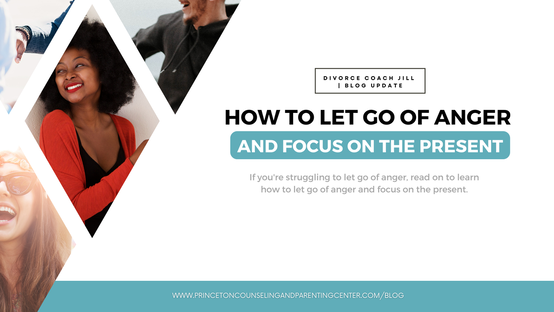|
It's normal to feel angry from time to time. But when anger starts to take over, it can negatively affect your mental and physical health and relationships. If you're struggling to let go of anger, read on to learn how to let go of anger and focus on the present.
1. Figure Out What Triggers Your Anger The first step in dealing with anger is to figure out what makes it happen. Is it a person or a situation that you’re dealing with? Or is it a general sense of being upset or powerless? You may be angry at yourself for doing something that you regret. If you aren’t sure where your anger is coming from, take some time the next time you get angry and think about what led up to the feeling of anger - what were you feeling before the anger? Once you know what makes you angry, you can start planning how to handle it. You can learn to deal with your anger in a healthy way. You can calm down by taking deep abdominal breaths, counting to 10, listening to music or going for a walk. Whatever works for you, it's important to have a plan, so you don't let your anger get the best of you. 2. Be Assertive, Not Aggressive, When Communicating Being assertive is very different from being aggressive. When you're assertive, you can tell the other person how you feel honestly and politely without putting them down or yelling. This is the best way to get across what you want to say without making things worse. On the other hand, being aggressive means letting your anger get the best of you and saying or doing things that you might regret later. Before you say anything, try to take a step back and take a few deep breaths if you find yourself getting angry. This will help you stay calm and in control of your emotions so that you can communicate effectively. 3. Learn Relaxation Techniques Relaxation techniques can help you healthily manage your anger. Deep breathing is a straightforward technique that can help you calm down. To do this, breathe in slowly and deeply through your nose, counting to four. Then breathe through your mouth, again counting to four. Repeat this several times until you start feeling relaxed. Other relaxation techniques include reciting a mantra (like “I’ll be ok”), meditation or visualization where you visualize a peaceful or happy place. 4. Practice Compassion If we can step back and try to see things from the other person's point of view, we can often feel sorry for them instead of angry. Having compassion for another person can help you let go of anger. Letting go of anger does not mean that you’ve forgiven the person. It means that you can release all of the angry emotion and move forward. You’ll be amazed at how good it feels to let go of anger and move forward in your life. 5. Talk to Someone Many people suppress their anger until it becomes unbearable. They believe that keeping their emotions to themselves will help them cope. However, when anger is bottled up, it can only go inward. This can lead to depression or exploding in an uncontrollable outburst later. Expressing your angry emotions in a safe and controlled environment is a much better option. Knowing that you have someone to help you process your emotions can be extremely beneficial. You can confide in a trusted friend or family member, a therapist, a coach or religious advisor. Having an outlet can keep your anger from escalating and causing other issues. Final Words It takes work to focus on the present moment and let go of anger. It takes time, patience, and effort, but the benefits of living anxiety-free and in the moment are priceless. You don't have to suffer or try to solve everything alone—asking for help is a sign of strength. Seeking professional help demonstrates that you value your well-being and are willing to make positive changes in your life. |
AuthorJill Barnett Kaufman, MSW, LCSW and Certified Parent Educator is an experienced clinician who helps clients discover new ways to resolve a variety of challenges and bring more happiness and peace into their lives. Archives
November 2023
Categories
All
|
|
If you are in crisis or in need of emergency assistance, please call 911. |
|



 RSS Feed
RSS Feed


